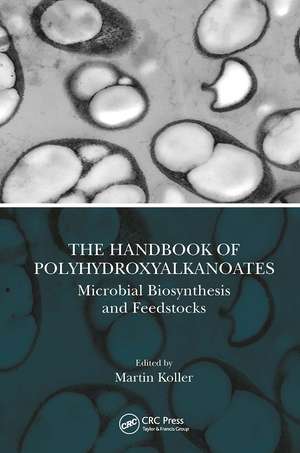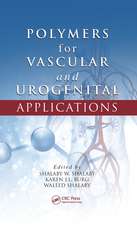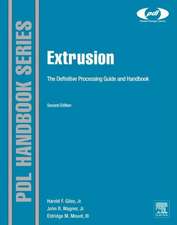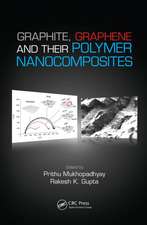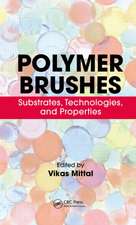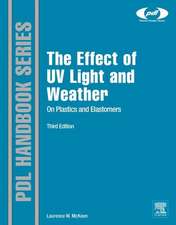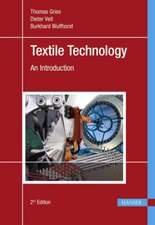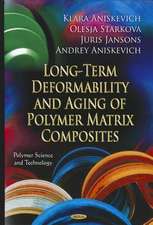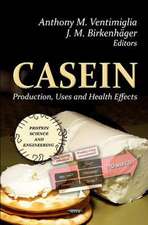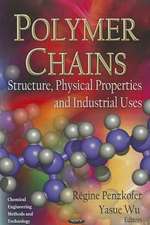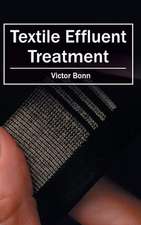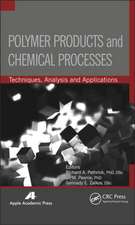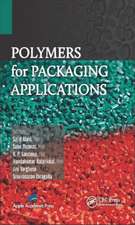The Handbook of Polyhydroxyalkanoates: Microbial Biosynthesis and Feedstocks
Editat de Martin Kolleren Limba Engleză Paperback – 30 aug 2024
Covers the intracellular on-goings in PHA-accumulating bacteria
Assesses diverse feedstocks to be used as carbon source for PHA production including current knowledge on PHA biosynthesis starting from inexpensive waste feedstocks
Summarizes recent relevant results dealing with PHA production from various organic by-products
Presents the key elements to understand and fine-tune the microstructure and sequence-controlled molecular architecture of PHA co-polyesters
Discusses the use of CO-rich syngas, sourced from various organic waste materials, for PHA biosynthesis
| Toate formatele și edițiile | Preț | Express |
|---|---|---|
| Paperback (3) | 495.64 lei 6-8 săpt. | |
| CRC Press – 30 aug 2024 | 495.64 lei 6-8 săpt. | |
| CRC Press – 30 aug 2024 | 498.78 lei 6-8 săpt. | |
| CRC Press – 30 aug 2024 | 522.69 lei 6-8 săpt. | |
| Hardback (3) | 996.78 lei 6-8 săpt. | |
| CRC Press – 20 oct 2020 | 996.78 lei 6-8 săpt. | |
| CRC Press – 6 noi 2020 | 1288.65 lei 6-8 săpt. | |
| CRC Press – 6 noi 2020 | 1339.62 lei 6-8 săpt. |
Preț: 495.64 lei
Preț vechi: 583.11 lei
-15% Nou
Puncte Express: 743
Preț estimativ în valută:
94.84€ • 97.84$ • 79.15£
94.84€ • 97.84$ • 79.15£
Carte tipărită la comandă
Livrare economică 26 martie-09 aprilie
Preluare comenzi: 021 569.72.76
Specificații
ISBN-13: 9780367541132
ISBN-10: 0367541130
Pagini: 452
Ilustrații: 36 Tables, black and white; 66 Illustrations, black and white
Dimensiuni: 156 x 234 x 23 mm
Greutate: 0.63 kg
Ediția:1
Editura: CRC Press
Colecția CRC Press
Locul publicării:Boca Raton, United States
ISBN-10: 0367541130
Pagini: 452
Ilustrații: 36 Tables, black and white; 66 Illustrations, black and white
Dimensiuni: 156 x 234 x 23 mm
Greutate: 0.63 kg
Ediția:1
Editura: CRC Press
Colecția CRC Press
Locul publicării:Boca Raton, United States
Public țintă
Postgraduate and ProfessionalCuprins
1. Monomer-Supplying Enzymes for Polyhydroxyalkanoate Biosynthesis. 2. PHA Granule-Associated Proteins and their Diverse Functions. 3. Genomics of PHA Synthesizing Bacteria. 4. Molecular Basis of Medium-Chain Length-PHA Metabolism of Pseudomonas putida. 5. Production of Polyhydroxyalkanoates by Paraburkholderia and Burkholderia species: A Journey from the Genes through Metabolic Routes to their Biotechnological Applications. 6. Genetic Engineering as a Tool for Enhanced PHA Biosynthesis from Inexpensive Substrates. 7. Biosynthesis and Sequence Control of scl-PHA and mcl-PHA. 8. Inexpensive and Waste Raw Materials for PHA Production. 9. Sustainable Production of Polyhydroxyalkanoates from Crude Glycerol. 10. Biosynthesis of Polyhydroxyalkanoates (PHA) from Vegetable Oils and its By-products by Wild-Type and Recombinant Microbes. 11. Production and Modification of PHA Polymers Produced from Long-Chain Fatty Acid. 12. Converting Petrochemical Plastic to Biodegradable Plastic. 13. Comparing Heterotrophic with Phototrophic PHA Production - Concurring or Complementing Strategies?. 14. Coupling Biogas (CH4) with PHA Biosynthesis. 15. Syngas as a Sustainable Carbon Source for PHA Production.
Notă biografică
Martin Koller was awarded his PhD degree by Graz University of Technology, Austria, for his thesis on polyhydroxyalkanoate (PHA) production from dairy surplus streams which was enabled by the EU-project WHEYPOL (“Dairy industry waste as source for sustainable polymeric material production”), supervised by Gerhart Braunegg, one of the most eminent PHA pioneers. As senior researcher, he worked on bio-mediated PHA production, encompassing development of continuous and discontinuous fermentation processes, and novel downstream processing techniques for sustainable PHA recovery. His research focused on cost-efficient PHA production from surplus materials by bacteria and haloarchaea and, to a minor extent, to the development for PHA for biomedical use.
He currently holds more than 70 Web-of-science listed articles in high ranked scientific journals (h-index 23), authored twelve chapters in scientific books, edited three scientific books and four journal special issues on PHA, gave plenty of invited and plenary lectures at scientific conferences, and supports the editorial teams of several distinguished journals.
Moreover, Martin Koller coordinated the EU-FP7 project ANIMPOL (“Biotechnological conversion of carbon containing wastes for eco-efficient production of high added value products”), which, in close cooperation between academia and industry, investigated the conversion of animal processing industry´s waste streams towards structurally diversified PHA and follow-up products. In addition to PHA exploration, he was also active in microalgal research and in biotechnological production of various marketable compounds from renewables by yeasts, chlorophyte, bacteria, archaea, fungi or lactobacilli.
At the moment, Martin Koller is active as research manager and external supervisor for PHA-related projects.
He currently holds more than 70 Web-of-science listed articles in high ranked scientific journals (h-index 23), authored twelve chapters in scientific books, edited three scientific books and four journal special issues on PHA, gave plenty of invited and plenary lectures at scientific conferences, and supports the editorial teams of several distinguished journals.
Moreover, Martin Koller coordinated the EU-FP7 project ANIMPOL (“Biotechnological conversion of carbon containing wastes for eco-efficient production of high added value products”), which, in close cooperation between academia and industry, investigated the conversion of animal processing industry´s waste streams towards structurally diversified PHA and follow-up products. In addition to PHA exploration, he was also active in microalgal research and in biotechnological production of various marketable compounds from renewables by yeasts, chlorophyte, bacteria, archaea, fungi or lactobacilli.
At the moment, Martin Koller is active as research manager and external supervisor for PHA-related projects.
Descriere
This volume focuses on feedstock aspects, enzymology, metabolism and genetic engineering of PHA biosynthesis and covers mechanisms of PHA biosynthesis, enhancement of PHA biosynthesis in bio-technological and microstructure terms and performance enhancement of PHAs over established petrol-based plastics on industrial scale.
